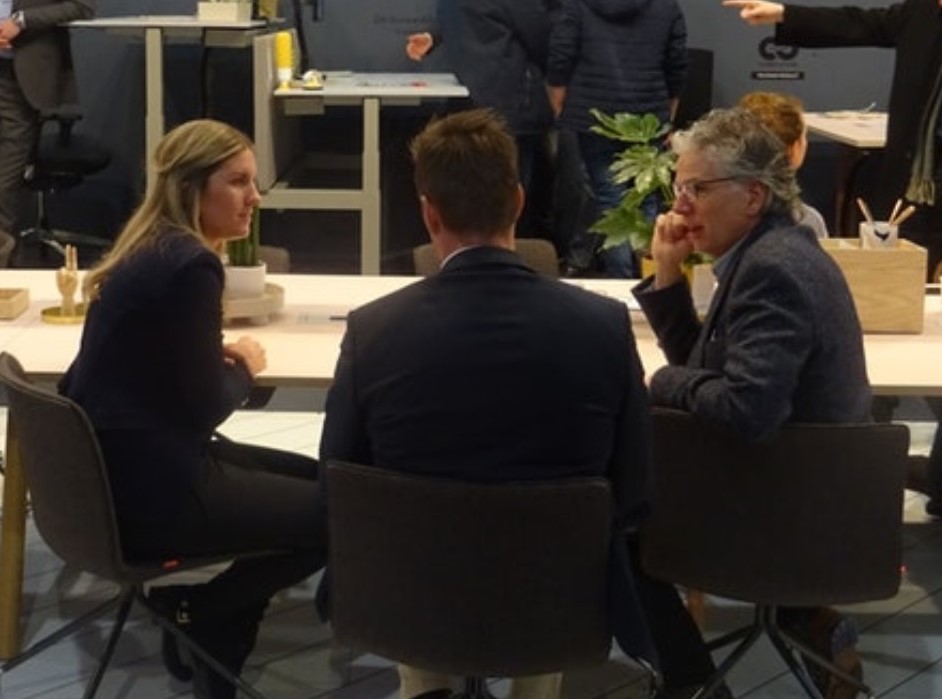MEDIATION - INDUSTRY & GOVERNMENT
 We offer a mediation service (also known as Alternative Dispute Resolution - ADR) for a broad range of disputes that arise within industry and government. This includes small to medium businesses (SME's), corporations and local government (Councils).
We offer a mediation service (also known as Alternative Dispute Resolution - ADR) for a broad range of disputes that arise within industry and government. This includes small to medium businesses (SME's), corporations and local government (Councils).
All industry and government departments have dispute resolution mechanism in place. However, employees may not possess the specific skill-set and experience required for successfully mediating these disputes. If internal mechanisms have been pursued and the outcome is not favorable, engaging an external mediation consultant is a viable option.
Disputes may occur in the following situations :
- Project management: disputes among teams regarding project management plans; the assignment of individuals to specific tasks; meeting deadlines and successfully engaging stakeholders.
- Committees and Boards: Disputes often arise among members of Committees and Boards. It is recognized that committee members are often subject to multiple commitments including the obligations of their own positions. Unresolved disputes can add to these demands and delay effective decision-making. The assistance of a mediator to guide committee and board members in resolving internal disputes can reduce that burden and return the entity to full and productive functioning.
- Employee Relations - Disputes are regular occurrences between employer/employee and among employees. Managing employee relations well is critical within organizations to ensure workplace issues are identified and resolved, and employee satisfaction and morale is measured and maintained at a high level. This promotes work commitment and loyalty to the organization.
*An independent consultant or 'third party' could assist resolve a workplace related dispute so long as this is permitted under the particular award, that is 'the powers that are expressly conferred by the relevant clause of the award, agreement, or other written agreement.' Refer to the Fairwork Ombudsman website for more information.
Consultant Services
All business entities have access to internal human resources teams processes and industry related dispute resolution mechanisms to manage their disputes. However, there are times when engaging a consultant may be a needed and viable option.
- Internal processes may not have resolved the issue, and pursuing more formal mechanisms may not be an option given the time required to engage and complete that process
- Time contraints applied to meeting the organization's performance measures or an urgent project, may not allow for engaging in lengthy formal processes
- The organization may not have sufficiently skilled internal staff to handle a specific issues that has arisen
The Objectives of Mediation
The objective of early mediation is to seek resolution to disputes before they negatively impact productivity or are possibly escalated to formal mechanisms or the courts. While not all disputes would warrant a court application, filing an application in the court is often a lengthy and costly process, and there is usually little guarantee of how a case will be determined. It is therefore, in the parties' best interests, to take some control in the outcome of their disputes by engaging in the mediation process.
Mediation as the Preferred Course of Action
Mediation is also the preferred course of action for most civil disputes prior to going to court.
According to the Civil Dispute Resolution Act 2011, which commenced on 1 August 2011, parties are encouraged 'to take genuine steps to resolve a dispute before commencing certain legal proceedings in the Federal Court and Federal Circuit Court.
The objectives of the Act are to:
- ensure that, as far as possible, people take genuine steps to resolve disputes before certain civil proceedings are instituted
- promote a move away from an adversarial approach to litigation
- improve access to justice by encouraging early dispute resolution
Civil Dispute Resolution Act
Our Approach
The Mediator preparation includes an initial discussion with all parties to gain a thorough history of the circumstances leading up to the dispute. The Mediation process involves initial statements by the parties, clarifying issues, exploring solutions, separate sessions as required and negotiating a mutually agreeable outcome. This occurs in a climate of impartiality, guided communication and mutual respect.
Depending on the nature of the issue, a checklist of relevant determinants is also made available to the parties to ensure all factors are given consideration.
The ADR process empowers the parties through the opportunity to be heard and have control over the outcome. In addition, valuable time, court and legal costs can be avoided.
*See also Stakeholder Engagement
Getting in Touch:
Feel free to call for a 30 min free no obligation discussion
